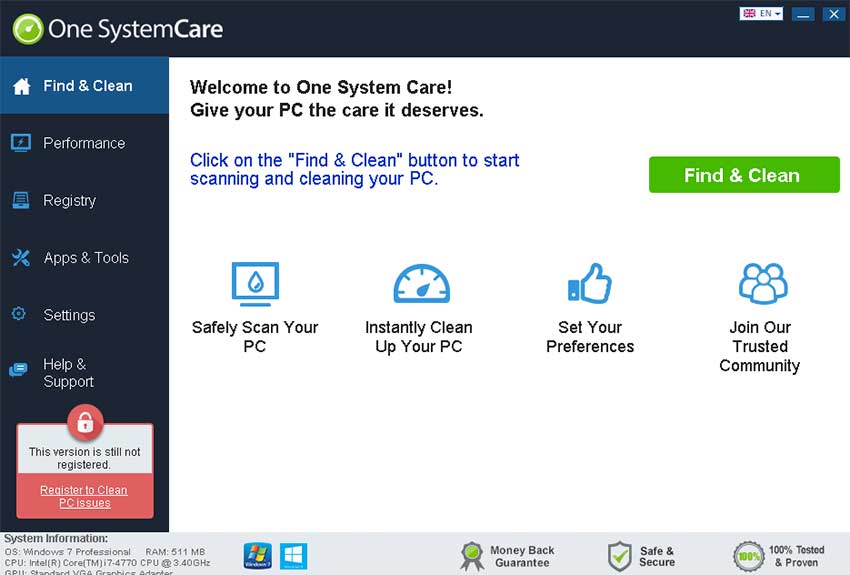I wrote this article to help you remove MusicApp Virus. This MusicApp Virus removal guide works for all Windows versions.
MusicApp is a tool meant for avid music listeners. It should make finding and listings to songs online easier. If you have the intention to look for a program to make music streaming easier for you, you should look elsewhere. MusicApp has a poor reputation. Researchers have found that the application performs unauthorized tasks. This exposes users to security risks. MusicApp can lead you to hazardous websites and cause you contract malware. This can be prevented, but the other mission on the furtive program’s agenda can only be controlled to a certain level. Because of the dangers surrounding it, MusicApp has been categorized as a potentially unwanted program (PUP).
It is necessary to warm people about the programs they should avoid. However, the reason for their presence can be other than your own will. Most users who come across MusicApp have not made the decision to acquire it. If your case is such, we can explain how the PUP has entered your computer. There are propagation vectors known as dark patterns through which hackers spread malware. The most common technique is bundling. A developed can merge MusicApp with another program. The additional software will be included as a bonus tool and selected per default. If you do not change the settings, it will be installed to your PC. Our advice on this matter is to read the terms and conditions.
The next method from the list is spam emails. The algorithm here is even simpler. The payload of MusicApp will be packed with an attached file. The sender will describe the object as a document. Spam emails are often presented as notifications from legitimate entities, like the national post, the local police department, courier firms, banks, government branches, social networks, and shopping platforms. To check whether a given letter has been sent by the stated organization, go to its official website and consult the contacts page. To conclude on the topic of distribution, we need to mention drive-by installations. This is the most facilitated technique. An infection occurs when accessing a corrupted website or clicking on a redirect link. Be careful about the sources you trust on the web.
MusicApp is ad-supported. The PUP will show you shopping offers on a constant basis. Your screen will be flooded with pop-ups, pop-unders, coupon boxes, in-text links, freebies, contextual, floating, transitional, interstitial, comparison, video, and inline ads. The PUP will interrupt you and extort your system’s resources. A slower performance speed is an initial symptom for the presence of the sinister program. This is a direct consequence of the ad generation. They appear in new windows and tabs, as well as within the active browser windows. Like it happens when you open multiple tabs, the loading process exerts a high amount of CPU and RAM memory.
MusicApp is not a shopping assistant to begin with, so why would you trust it to provide you with shopping deals? Granted, they may be enticing. The PUP can be immaculate and convincing in its initiative to attract the unsuspecting user. The ads will show you various listings, featuring items like clothes, accessories, sports gear, furniture, decorative elements, technological devices, games, toys, gardening equipment, and many others. You will notice that a lot of the suggestions are related to your recent searches and your online purchases. This does not mean that the tool is working in your favor. You are valuable for your contribution as a visitor. The owners of the PUP get paid for every time a user follows an ad. This method is known as the pay-per-click system.
It is not illegal to promote third party content. However, the owners of MusicApp do not account for the reliability of the sponsored websites. The risk is yours to take and the consequences of landing on an infected domain would be assumed entirely by you. The other major threat around the PUP is data theft. The furtive program will monitor your browsing sessions and gather different types of input on you, including your history, tracking cookies, IP address, geographic location, demographic profile, email, telephone number, user names, passwords, and financial credentials. The recorded information will be sold on the darkweb.
MusicApp Virus Removal
 Run the Task Manager by right clicking on the Taskbar and choosing Start Task Manager.
Run the Task Manager by right clicking on the Taskbar and choosing Start Task Manager.

Look carefully at the file names and descriptions of the running processes. If you find any suspicious one, search on Google for its name, or contact me directly to identify it. If you find a malware process, right-click on it and choose End task.

Open Control Panel by holding the Win Key and R together. Write appwiz.cpl in the field, then click OK.

Here, find any program you had no intention to install and uninstall it.

Open MS Config by holding the Win Key and R together. Type msconfig and hit Enter.

Go in the Startup tab and Uncheck entries that have “Unknown” as Manufacturer.
Still can not remove MusicApp Virus from your computer? Please, leave a comment below, describing what steps you performed. I will answer promptly.

